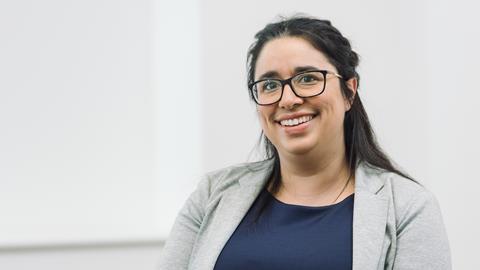I am currently a senior associate in the patent litigation team at Bristows. I have a technical background, so I tend to focus on cases in the telecoms and engineering sphere.
After graduating with an MSci in physics from Imperial College London, I did a vacation placement at a London firm that had a strong intellectual property (IP) presence at the time.
After that I applied for training contracts and, luckily, secured my training contract at Bristows a few weeks before I was due to head off travelling for six months. On my return, I did my Graduate Diploma in Law (GDL) and Legal Practice Course at BPP in London and started at Bristows in September 2009.
During my training contract, I did seats in the real estate, IP litigation, commercial IP, commercial litigation and regulatory teams.
In my IP litigation seat, I was hooked almost instantly when I worked on a patent litigation case involving magnetoresisive read-write heads. It was the perfect mix of Nobel prize winning science and exciting litigation.
Upon completion of my training contract, I qualified into the IP litigation team and my work has focused largely on patent litigation.
Before going into law, I once considered scientific research or becoming a teacher, but, ultimately, I decided that these weren’t for me.
What I loved about science was the application of rules to help solve problems and I wanted to use that skill set in a commercial context, so I started to consider law as a career.
In my final year at university, there was lecture on commercialising scientific ideas which touched on the legal issues involved in starting a spin out company and, very briefly, on the possible IP protection you might look to secure.
This piqued my interest and I started to do some more research into IP. It seemed to me that IP, and patents in particular, meant I could utilise the problem-solving skills I’d acquired studying physics in a legal context and still enabled me to be involved in cutting edge science and technology.
After that, I was focused on finding a training contract with a firm that had a strong IP presence.
When I was at university, converting from science to law was fairly unusual, and careers advisers weren’t aware of it as an option. Only a tiny number of law firms – including Bristows – came to Imperial’s career fair.
There wasn’t even a law society. So, together with a few friends from my degree course, we set one up. It was very small to start with, just a handful of us, but it grew fairly quickly, and we gained members from across the departments at Imperial. We organised talks from firms about the training contract application process and life in a commercial law firm.
In my day-to-day job, my physics background helps me to understand the technical background of many of the patents I look at. It would be very rare that something comes that had been covered in my degree course, but that background knowledge and my interest in technology is really helpful when working on a new case and getting to grips with a new technology.
For me, one of the best bits of the job is working with clients and expert witnesses (often top professors) to gain an in depth understanding of the specific scientific area, the problem the invention aims to solve and the solution it proposes. Essentially, we are constantly learning about new technology which I find very exciting.
I also love getting to learn about new science and then being able to use that knowledge to sculpt legal arguments to help clients achieve their commercial goals. Further, working with a range of clients in different areas means that my work is always different and constantly challenging.
Bristows has such a brilliant and passionate IP team and I enjoy working with them on cases for our clients.
My advice for students with a science background looking to go into IP is don’t be daunted by the transition into law. By the time you have done the GDL, you are on an equal footing with those that have done a law degree or transitioned from any other subject. Remember, your scientific background is a huge asset.
They should also get as much experience as possible – either through vacation placements or by attending talks aimed at STEM students contemplating law as a career.
It’s also helpful to remember that court is a public forum, while you can’t attend in person at the moment, it is possible to watch hearings on Teams or Skype. Keep an eye on the court list for IP cases and try to watch part of a hearing.
The Law Society’s Intellectual Property Law Committee (IPLC) welcomes any questions you may have about IP, or any discussions around the impact of Covid-19 in the IP world. Please send queries and feedback to William McSweeney at william.mcSweeney@lawsociety.org.uk
































No comments yet